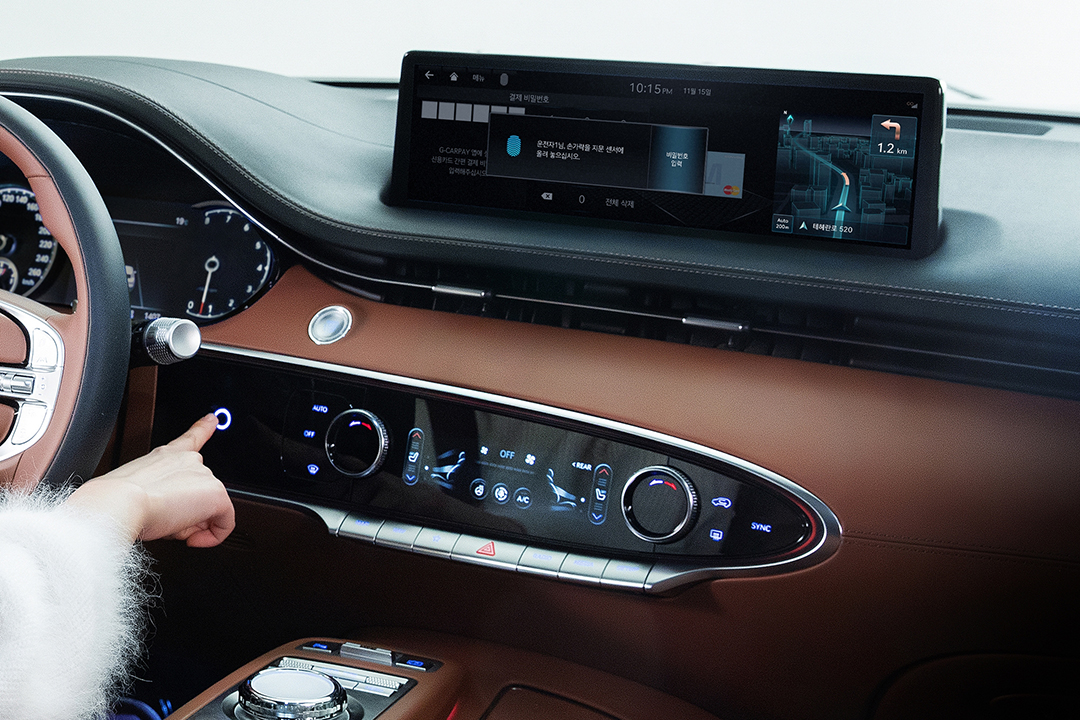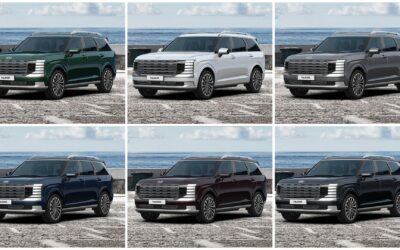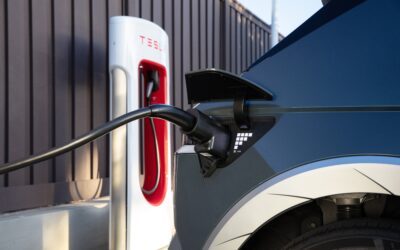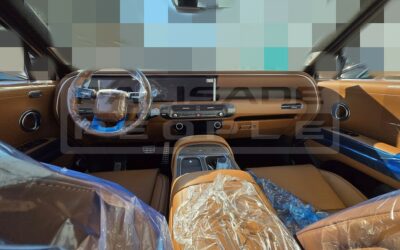Genesis continues releasing more details of its second SUV, the GV70, while we are waiting for the final release scheduled next month. Genesis announced on Thursday that it will apply first in-vehicle fingerprint in the GV70, an intelligent vehicle technology that uses biometrics to improve convenience and safety, but there’s more.
[ads id=”9″]
The new technologies to be applied to the GV70 are ‘In-vehicle Easy Payment Genesis CarPay Interlocking Fingerprint Authentication System’ and ‘Advanced ROA or Rear Occupant Alert’ based on radar sensor. There are cases in which the technology that allows door opening, starting, and driving with fingerprint authentication has already been applied, but this technology, which improves driver convenience and security by executing functions only with fingerprint recognition during electronic payment, was installed in the Genesis GV70 for the first time in the automobile industry.
Customers can use Genesis CarPay more easily by authenticating their fingerprints with a fingerprint sensor applied at the bottom of the start button instead of entering a six-digit password, which is the conventional method, at the step of authenticating themselves before payment.
In addition, GV70 customers can use the fingerprint authentication system in Valet Mode, which prevents the customer’s personal information such as home address and phone book from appearing on the infotainment screen when using a parking/driving service that requires someone else to leave the car. In addition, the fingerprint authentication system installed in the GV70 is linked with vehicle startup and personalized driver’s seat settings. GV70 customers can use the car simply by opening the car door with a remote command through the Genesis Connected App on their smartphone and starting the engine with only fingerprint recognition without having a smart key.
In addition, when the driver starts the engine through fingerprint authentication, personalized information such as the driver’s driver’s seat position, steering wheel position, head-up display position, the latest navigation destination, and infotainment volume stored with the fingerprint is automatically set.
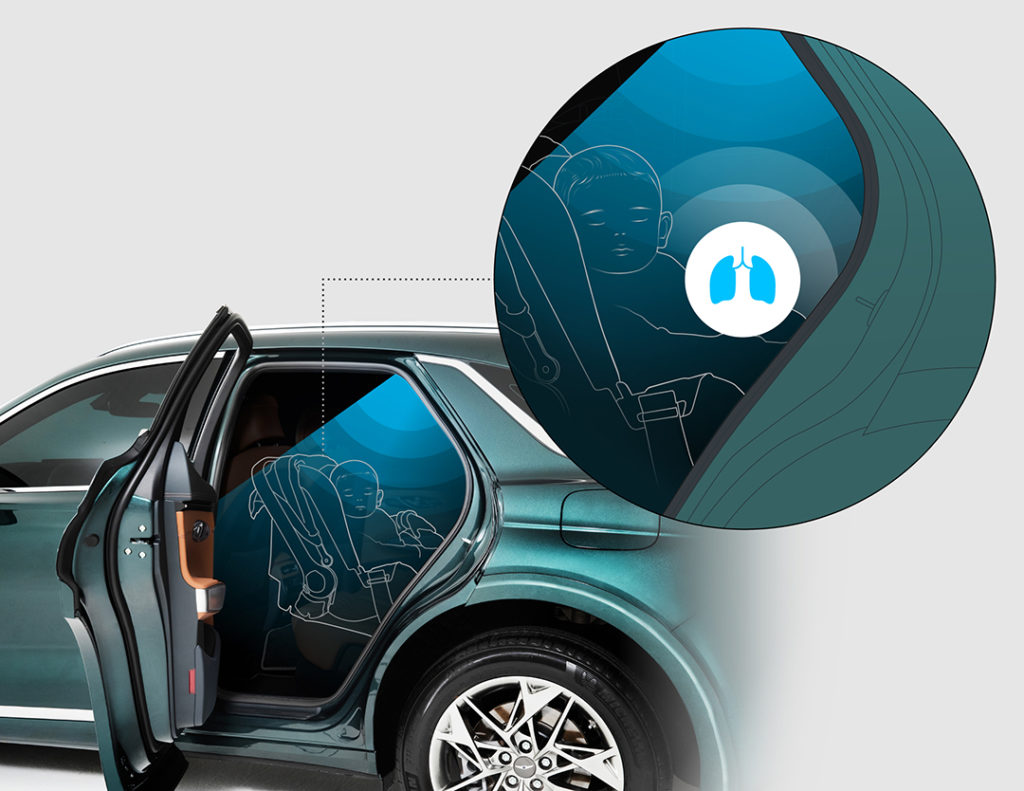
[ads id=””]
Genesis is the first in the world to apply advanced rear-seat passenger notification technology based on radar sensors that are more sophisticated than existing ultrasonic sensors in the GV70. Rear-seat passenger notification is a technology that provides step-by-step notification to the driver after detecting it with a radar sensor installed in the interior when a passenger is in the rear seat of a vehicle.
This technology infers whether or not there is a person in the second row by opening or closing the rear door of the vehicle, and when the driver turns off the engine and opens the driver’s seat door, the cluster warning message and warning sound primarily informs that passengers remain. When the driver gets out of the car without recognizing the first notification, the radar sensor built into the indoor ceiling detects the passengers in two rows to determine whether they are boarding, then turns on the emergency light, sounds an alarm, and sends a text message to the driver at the same time.
In particular, the radar sensor applied to the GV70 accurately detects not only large movements such as arms and legs of the rear passengers, but also minute movements of the chest caused by breathing, and notifies the driver even if awake children as well as asleep infants remain in the second row.
In addition, the radar sensor, which has a wider detection range than the ultrasonic sensor, can detect up to the rear of the second row, confirming the movement of companion animals remaining in the cargo space after getting off. In addition, it is possible to penetrate non-metal materials such as clothes, blankets, baby car seats, and pet kennels (portable cages) to further protect passengers and pets.
A Genesis official said, “The fingerprint authentication system has increased the usability of infotainment so that customers can use the vehicle start-up and personalization service more conveniently, and by using sophisticated radar sensors, we are able to protect the rear passengers more safely.” “We plan to advance biometrics technology so that vehicles can be used more safely and conveniently in various types of mobility environments by analyzing data collected by various sensors in a complex manner.”

